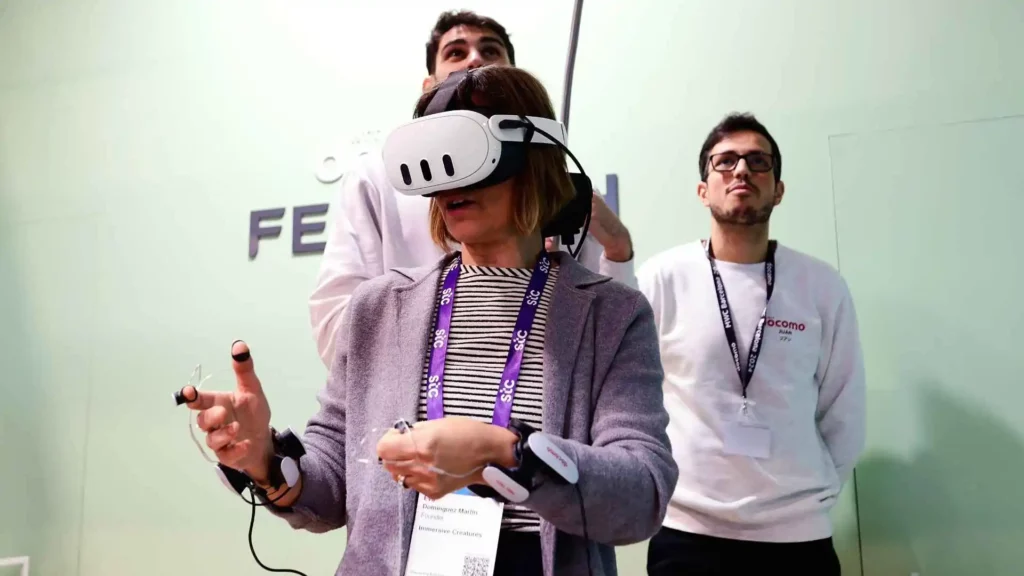Meta Open Sources Quest OS, Further Differentiating its VR Offering From Apple’s Vision Pro

A woman uses the the Meta Quest 3 VR headset. Photo by Joan Cros/NurPhoto via Getty Images.
Key Takeaways
- Meta has opened up its Quest operating system to other developers.
- The company became a major player in the VR space when it bought Oculus in 2014.
- Apple has eaten into Meta’s market share since it launched the Vision Pro earlier this year.
When Apple entered the Virtual Reality (VR) headset market in February, it made sure to distinguish the Vision Pro by pricing it nearly ten times higher than rival products in the same segment.
The move is classic Apple, recalling the first iPhone’s $599 price tag, which was unprecedented at the time. But in this story, Meta’s Quest Operating System (OS) could prove to be the Android of VR after the company open-sourced the platform on Monday, April 22.
Open Source Operating Systems
When the first Android phone, the HTC Dream, launched in 2008, it marked a critical juncture for the nascent smartphone industry.
After the first iPhone had revolutionized the sector the previous year, Android was positioned as the open-source answer to Apple’s iOS.
Since then, HTC has largely been relegated to the sidelines as its market share has dwindled. But Android is now the most popular smartphone operating system by a country mile and runs on over 70% of all smartphones globally.
If the iPhone pioneered the smartphone concept, Android made it universal, giving other manufacturers the tools to build devices catering to markets Apple ignores.
As demand for VR headsets increases, Apple’s Vision Pro also ignores the vast majority of potential users who don’t have $3,500 to splurge on a VR headset.
Catering to Different Markets
Meta’s Quest 3 is already positioned as a cheaper alternative to the Vision Pro. But now that its operating system has been opened up to third parties, other players could soon enter the space too.
Of course, Apple’s approach, which is based on high-end devices and proprietary software, has worked in the past. By refusing to engage in price wars and doubling down on Europe and North America, the company has become the most profitable smartphone maker in the world.
However, an open-source Quest OS creates new possibilities for innovation. Not only could it drive down prices, it could also encourage the kind of tinkering and modification that gamers (who currently make up the biggest VR market) love.
What Next for VR Headsets?
Returning to the smartphone analogy, the Vision Pro doesn’t feel as revolutionary as the iPhone. Other than ramping up the technical specifications, Apple barely departed from the basic model pioneered by Oculus.
But at the same time, Meta doesn’t have the same open-source credentials that Google had when it put its weight behind Android. Neither has Quest OS emerged from the same kind of collaborative background.
To further complicate matters, Samsung and Google are reportedly working on a new headset of their own.
Although the project remains under wraps, given the 2 companies’ backgrounds, it seems likely the device will run a custom version of Android designed for augmented and virtual reality.


